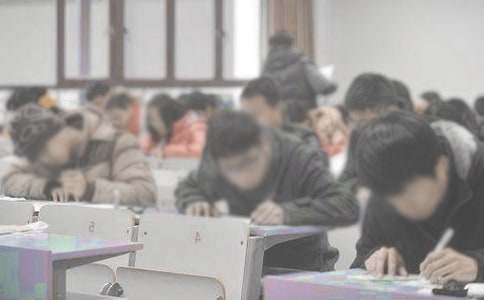- 大學(xué)英語(yǔ)四級(jí)考試翻譯練習(xí)題 推薦度:
- 相關(guān)推薦
大學(xué)英語(yǔ)四級(jí)考試翻譯練習(xí)
火鍋擁有幾千年的歷史。是人們?cè)诙熳钕矚g吃的東西之一。下面是小編整理的英語(yǔ)四級(jí)翻譯,歡迎大家閱讀!

吃火鍋
火鍋(hot pot)是中國(guó)的傳統(tǒng)飲食方式之一,擁有幾千年的歷史。在寒冷的冬天,人們喜歡吃能立即暖身和提神的火鍋。如今在許多現(xiàn)代家庭里,用煤炭加熱的`(coal-heated)傳統(tǒng)火鍋已經(jīng)被電磁爐(induction cooker)火鍋所取代。各地火鍋風(fēng)格各異,所使用的火鍋原料也不盡相同。一般來(lái)說(shuō),用于火鍋的肉類(lèi)包括豬肉、牛肉、雞肉、鴨肉等,其他的菜則包括蔬菜、蘑菇、面條等。
參考譯文:
With a history of several thousand years, hot pot is one of the traditional Chinese diets. In the cold winter,people like to eat the hot pot that instantly warms their bodies and lifts their spirits. Today in many modern homes, the traditional coal-heated hot pots have been replaced by induction cookers. Hot pot styles and ingredients vary from region to region in China. Generally, the common meats used include pork, beef, chicken, duck and others, while other hot pot dishes are vegetables, mushrooms, noodles, etc.
七夕
自上世紀(jì)90年代后期起,七夕節(jié)(the Double SeventhFestival )開(kāi)始被稱(chēng)為“中國(guó)的`情人節(jié)”。這個(gè)節(jié)日可以追溯到漢朝,當(dāng)時(shí)對(duì)戀人、女孩都是個(gè)特殊的日子。 這天,女孩會(huì)舉行儀式,向織女(Zhinv)乞求智慧、技藝和美滿婚姻,所以七夕節(jié)還被稱(chēng)為“乞巧節(jié)(the Begging for SkillsFestival)”。如今,一些傳統(tǒng)習(xí)俗已經(jīng)弱化。人們現(xiàn)在把七夕節(jié)當(dāng)作浪漫的情人節(jié)來(lái)慶祝,尤其是在年輕人中間。
參考譯文:
The Double Seventh Festival has been called Chinese Valentine's Day since the late 1990s. The festival can be traced back to the Han Dynasty. It was then a special day not only for lovers, but also for girls.Girls would hold a ceremony to beg Zhinv for wisdom, skills and a satisfying marriage. So it is also called “the Begging for Skills Festival”.Today some traditional customs have been weakened. Now the festival is celebrated as a romantic valentine's day, particularly among young people.
下午茶
中國(guó)飲茶的傳統(tǒng)可以追溯到公元前3000多年,但“下午茶”的概念卻是到17世紀(jì)中葉(the mid 17th century)才在英國(guó)出現(xiàn)的。當(dāng)時(shí)那里時(shí)興的晚餐時(shí)間是晚上8點(diǎn),所以一位公爵夫人(Duchess)養(yǎng)成了在下午4點(diǎn)約朋友吃糕點(diǎn)的習(xí)慣。很快下午茶成為當(dāng)時(shí)的`社會(huì)潮流。隨東西方文化交流的加深,這個(gè)英國(guó)傳統(tǒng)逐漸進(jìn)入中國(guó)。如今,下午茶在國(guó)內(nèi)日漸流行起來(lái),尤其是在廣東和福建地區(qū)。
參考譯文:
Although the tradition of drinking tea dates back to more than 3,000 B.C. in China, it was not until the mid 17th century in the UK that appeared the concept of "afternoon tea". The dinner time then was popularly late at 8 pm, so a Duchess developed a habit of inviting Mends to enjoy some cakes at 4 pm in the afternoon. Quickly, afternoon tea became a fashionable social event. With the cultural exchanges between the east and the west deepening, this British tradition was gradually in-traduced into China. Now, afternoon tea is increasingly popular in China, especially in the area ol Guangdong and Fijian provinces.
筷子的悠久歷史
筷子(chopsticks)是中國(guó)古人發(fā)明的一種具有鮮明民族特色的進(jìn)食工具(tableware),是反映中國(guó)飲食文化特色的重要組成部分。中國(guó)人使用筷子的歷史可追溯到商代,距今已有三千多年。筷子可謂是中國(guó)國(guó)粹,既輕巧又靈活,在世界各國(guó)餐具中獨(dú)樹(shù)一幟,被西方人譽(yù)為“東方的文明”。凡是使用過(guò)筷子的'人,不論中國(guó)人或是外國(guó)人,都因其使用方便、物美價(jià)廉而贊嘆不絕。
參考譯文:
Chopsticks, invented by ancient Chinese people, are a kind of tableware with distinct national features, being an important component that reflects the characteristics of Chinese diet culture. The history of using chopsticks in China dates back to the Shang Dynasty, more than3,000 years ago. Chopsticks, the quintessence of Chinese culture, whose lightness and flexibility develop a school of its own among various tableware all over the world, are praised as "Eastern Civilization" by the westerners. All those people who have ever used chopsticks, no matter Chinese or foreigners, marvel at their convenience, excellent quality and reasonable price.
中國(guó)的八大菜系
中國(guó)一個(gè)幅員遼闊、資源豐富、歷史悠久的多民族國(guó)家,每個(gè)民族都有其獨(dú)特的豐富菜肴。地域菜系在地理環(huán)境、氣候、文化傳統(tǒng)、民族風(fēng)俗和其他因素的影響下經(jīng)過(guò)悠久歷史的發(fā)展已經(jīng)成形。最有影響力、最具代表性的是魯、川、粵、閩、蘇、浙、湘、徽菜系,這八種被人們稱(chēng)為“八大菜系”。中國(guó)的“八大菜系”是以多種多樣的`烹飪方法區(qū)分的,各有其長(zhǎng)處。
參考譯文:
China is a time-honored multi-ethnics nation with a vast territory and abundant resources, and every ethnic group has its unique abundant dishes. Regional cuisines have taken shape after long-history evolution under the influence of geographical environment, climate, cultural tradition, folk customs and other factors. The most influential and representative ones are Lu, Chuan,Yue, Min, Su,Zhe, Xiang and Hui Cuisines, which are commonly known as “Eight Major Cuisines”. Dishes in the “Eight Major Cuisines” in China are characterized by diversified cooking skills, with each having its strong points.
【大學(xué)英語(yǔ)四級(jí)考試翻譯練習(xí)】相關(guān)文章:
大學(xué)英語(yǔ)四級(jí)考試翻譯練習(xí)題01-22
英語(yǔ)四級(jí)考試翻譯練習(xí)材料及答案03-26
大學(xué)英語(yǔ)四級(jí)考試的翻譯技巧03-17
大學(xué)英語(yǔ)四級(jí)翻譯練習(xí)及參考答案03-06
2016英語(yǔ)四級(jí)翻譯練習(xí)及答案03-25
大學(xué)英語(yǔ)四級(jí)考試詞匯練習(xí)題03-19